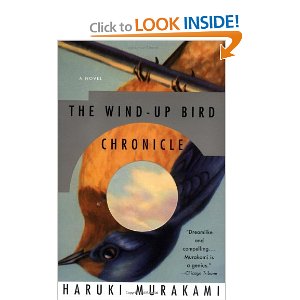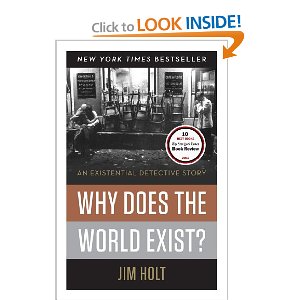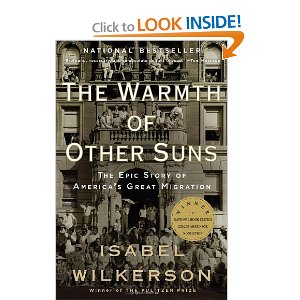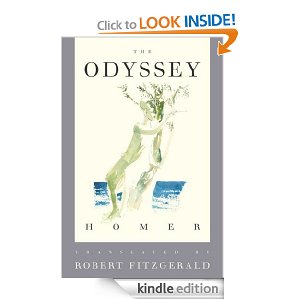Happy New Year, friends. It has been an interesting few weeks. I've been on a bit of a break, taking time to do artsy things like paint and watch documentaries and take naps. It's been nice to get away from the classroom and enter the greater classroom of life that is my adopted city. Unseasonably mild for the first month of winter, Chicago has cooled considerably in the past few weeks. Though still not enough to make the sparse snow stick, it is more than cold enough for a former Floridian to take a raincheck on the walk by the lake, and spend some time indoors with my most consistent companion, a book. (Yes, some young black men do love reading. Personally, I like to see my contemporary reading as some sort of trans-epochal revenge for when they made it illegal to teach my slave ancestors how to read. No, I will not let it go, no matter how many Djangos Hollywood makes, primarily but not only because I don't go to the movies. I read. My conspiracy theories have been peer reviewed and are therefore infinitely more difficult to disrepute. But I digress.)
Anyhow, I often come across people who are looking for "good" book suggestions. I think what they mean is that they want someone whose opinion they trust to suggest something that will be worth their time. We live in an information-saturated society, and to understate it dramatically, not all of it is healthy information. What I mean is that much of what's out there is out there for one reason only--to drive someone's bottom line. Sometimes people will say something is good without actually believing it is good. Also -- less conspiratorially -- what's "good" ultimately depends on the person doing the reading.
So what's "good" to me? When I say a book is "good," I mean that it somehow helped me to understand the world or myself better than I had before, and that I feel like a better, more nuanced, more intellectually astute person for having read it. I also mean that it was enjoyable, that it elicited some pleasure--whether the pleasure of the beauty of the prose, or of the ideas, or it caused laughter, or some combination of them all--it felt good. I also like when a book surprises me. Predictability is boring and besides it reeks of laziness. Unless you're predictable because you're making some statement about the flatness of postmodern society or something. But much of that work is boring to me, too. I like a good story. I grew up hearing good stories told by master storytellers, and to me, a good book will leave you with very much the same feeling of satisfaction and internal order as a good story did when you were three or four years old.
Over the past few months, I've read all or part of lots of books. I want to share some of the "good" ones with you. Each of these books resonated with me in some "deep" way, and I highly recommend them for these cold and introspective winter days.
1. The Emperor of All Maladies: A Biography of Cancer by Siddhartha Mukherjee
 Siddhartha Mukherjee's Emperor of All Maladies is a fascinating work that seeks to tell (and very much succeeds in telling) the "biography" of one of our society's most insidious diseases: cancer. Rare are the physicians whose capacity for language transcends the dry, the distant, and the clinical; count Mukherjee among that number. With poetic care, he traces the rise of the phenomenon, the idea, and the implications of cancer from ancient times to the present, infusing his prose with all the mystical terror the disease possessed in premodern and preindustrial societies. Emotive, often wrenching, and always intellectually stimulating, I recommend The Emperor of All Maladies to any of my friends out there interested in stirring and important contemporary nonfiction work. It will get you going, and perhaps even inspire you to undertake some great life work with renewed vigor.
Siddhartha Mukherjee's Emperor of All Maladies is a fascinating work that seeks to tell (and very much succeeds in telling) the "biography" of one of our society's most insidious diseases: cancer. Rare are the physicians whose capacity for language transcends the dry, the distant, and the clinical; count Mukherjee among that number. With poetic care, he traces the rise of the phenomenon, the idea, and the implications of cancer from ancient times to the present, infusing his prose with all the mystical terror the disease possessed in premodern and preindustrial societies. Emotive, often wrenching, and always intellectually stimulating, I recommend The Emperor of All Maladies to any of my friends out there interested in stirring and important contemporary nonfiction work. It will get you going, and perhaps even inspire you to undertake some great life work with renewed vigor.
2. The Wind-Up Bird Chronicle / 1Q84 by Haruki Murakami
 I had to fit both of these books in here because they are both so very good. Murakami is, to me, like the closest thing to an evolution of the mixup of Invisible Man-era Ralph Ellison with Catch-22-era Joseph Heller, infused with all the cultural affects of the 1980s and the wide perspective and dauntless imagination of George Orwell--and then some. I don't know how to describe him. I read Murakami's books and I feel good because he finds a way to make the infinitely weird and complex experience of contemporary postmodern life powerfully meaningful as well as supremely accessible -- and hilarious to boot! His prose is direct, simple, and so effective it makes writer types like myself jealous with technical awe. Murakami is a writer of the top order. I don't want to give away too much of the plots of these novels, but suffice to say both deal with men and women whose apparently mundane world is infused with the deepest mysteries of existence. Both live in worlds that are more than they seem. Both reveal how much more there is to see in the world in which we live. If you're the literary, intellectual, young spirited, politically astute, culturally complex type, these books will rock your being.
I had to fit both of these books in here because they are both so very good. Murakami is, to me, like the closest thing to an evolution of the mixup of Invisible Man-era Ralph Ellison with Catch-22-era Joseph Heller, infused with all the cultural affects of the 1980s and the wide perspective and dauntless imagination of George Orwell--and then some. I don't know how to describe him. I read Murakami's books and I feel good because he finds a way to make the infinitely weird and complex experience of contemporary postmodern life powerfully meaningful as well as supremely accessible -- and hilarious to boot! His prose is direct, simple, and so effective it makes writer types like myself jealous with technical awe. Murakami is a writer of the top order. I don't want to give away too much of the plots of these novels, but suffice to say both deal with men and women whose apparently mundane world is infused with the deepest mysteries of existence. Both live in worlds that are more than they seem. Both reveal how much more there is to see in the world in which we live. If you're the literary, intellectual, young spirited, politically astute, culturally complex type, these books will rock your being.
3. Why Does the World Exist?: An Existential Detective Story by Jim Holt
 There are books that make you think, and then there are books whose thoughts never leave you. You end up engaging with their questions at strange, unexpected times, often under seemingly non-related circumstances. Jim Holt's Why Does the World Exist is one of those books. It strikes you and doesn't let go. The premise of the book is simple enough: the author seeks to answer the fundamental question, "why does the world exist?" The question quickly blooms into the wider, more direct "Why is there something rather than nothing?" From here, as promised, the author goes on a detective mission, examining the answer to these questions from an astounding range of sources, philosophical, religious, mathematical, quantum and astrophysics. If you know me, you know this is my kind of book. Mind-bending, meaningful, and worth every second, Holt's work is also valuable because it puts things into perspective, quite a rarity in this era of excessive absurdities. I highly suggest you read it.
There are books that make you think, and then there are books whose thoughts never leave you. You end up engaging with their questions at strange, unexpected times, often under seemingly non-related circumstances. Jim Holt's Why Does the World Exist is one of those books. It strikes you and doesn't let go. The premise of the book is simple enough: the author seeks to answer the fundamental question, "why does the world exist?" The question quickly blooms into the wider, more direct "Why is there something rather than nothing?" From here, as promised, the author goes on a detective mission, examining the answer to these questions from an astounding range of sources, philosophical, religious, mathematical, quantum and astrophysics. If you know me, you know this is my kind of book. Mind-bending, meaningful, and worth every second, Holt's work is also valuable because it puts things into perspective, quite a rarity in this era of excessive absurdities. I highly suggest you read it.
4. The Odyssey by Homer (Robert Fitzgerald Translation)
Okay, so this one isn't new by any stretch of the imagination. Nonetheless, I am almost ashamed to say that before this past month I had never attempted to read this classic of literature in its entirety. I have a superstition that sometimes great things finds their way to you only when you are most ready for them; if they come before you're ready, you end up missing out on something important.
Ah, but enough excuses. The basic plot is familiar: a young man goes out seeking his father, who has been presumed lost at sea; meanwhile his father is stranded on an island with a beautiful supernatural woman who doesn't want to let him go; meanwhile, back at his father's palace ('cause the father is a king) hordes of men eat his food and try to marry his presumed- widowed wife while ignoring supernatural signs and mocking, then plotting to kill, the son. I'm not going to tell you how it ends, or even how it middles (that was just the beginning) but suffice to say the whole thing has left me with a renewed awe and respect for the old blind poet. If you are like I was, or if you haven't read it in a while, I suggest you take it for a look. It's not a classic for no reason.
5. The Warmth of Other Suns by Isabelle Wilkerson
 Isabelle Wilkerson's Warmth of Other Suns tells the story of the Great Migration -- the massive movement of African Americans in the early decades of the 20th century from the rural, often violently racist and economically discriminatory South. What sets this book apart from a dozen other historical studies on the Great Migration is Wilkerson's capacity to make the story so intimate and personal that the reader has no choice but to gain insight to the processes by which individual souls become implicated in wide, historical movements. Not only does she examine their lives and adventurous escapes from the South, she tells the story of their offspring, and their offspring's offspring. As a black American whose familial ties to this continent go back several generations, into the abyss of the earlier centuries, I was moved with almost every story Wilkerson told. As a public school teacher in inner city Chicago, I see every day the descendants of the people who came to Chicago fleeing the violence of the south. I am grateful to Ms. Wilkerson for writing a book whose implications extend into the practical realm of self-creation for the often-ignored descendants of the often-forgotten Great Migrators.
Isabelle Wilkerson's Warmth of Other Suns tells the story of the Great Migration -- the massive movement of African Americans in the early decades of the 20th century from the rural, often violently racist and economically discriminatory South. What sets this book apart from a dozen other historical studies on the Great Migration is Wilkerson's capacity to make the story so intimate and personal that the reader has no choice but to gain insight to the processes by which individual souls become implicated in wide, historical movements. Not only does she examine their lives and adventurous escapes from the South, she tells the story of their offspring, and their offspring's offspring. As a black American whose familial ties to this continent go back several generations, into the abyss of the earlier centuries, I was moved with almost every story Wilkerson told. As a public school teacher in inner city Chicago, I see every day the descendants of the people who came to Chicago fleeing the violence of the south. I am grateful to Ms. Wilkerson for writing a book whose implications extend into the practical realm of self-creation for the often-ignored descendants of the often-forgotten Great Migrators.
Well that's it for now. I'll be back next month with more books, and sooner than that with other interesting tidbits. May the beginning of your year bring you joy, peace and rest.
-R
